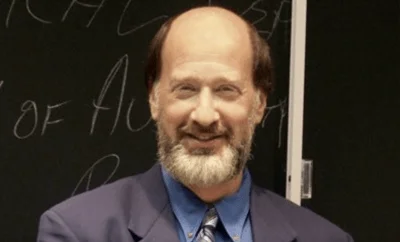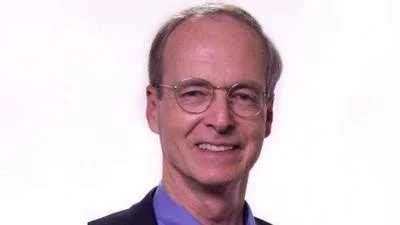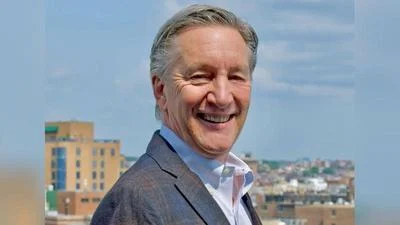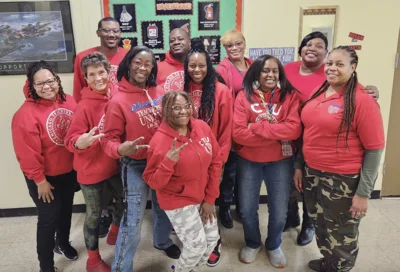City of Wheaton City Council met Aug. 26.
Here is the minutes provided by the council:
I. Call to Order and Roll Call The public hearing of the Wheaton City Council was called to order at 7:00 p.m. by Mayor Suess. The public hearing was held in the Council Chambers, Wheaton City Hall, 303 W. Wesley Street, Wheaton, Illinois. Upon roll call, the following were:
Present: Mayor Suess
Councilman Barbier
Councilwoman Bray-Parker
Councilwoman Fitch
Councilman Rutledge
Councilman Zaruba
Absent: None
City Staff Present: Michael Dzugan, City Manager
John Duguay, Assistant City Manager
James Kozik, Director of Planning & Economic Development
Susan Bishel, Public Relations Coordinator
II. Public Hearing – ZA #19-13/ Text Amendment/ Articles 3 and 21/ Cannabis Business
a. Presentation
City Manager Dzugan stated the City Council is acting as the hearing body for a public hearing to consider a text amendment to the Zoning Ordinance. The text amendment as currently drafted would prohibit cannabis business enterprises, cultivation centers and dispensing organizations in any zoning district within the city. He stated the memorandum includes a summary of the Cannabis Regulation & Tax Act, and provides a good overview of the legislation.
City Manager Dzugan stated staff established a schedule with a first reading on Sept. 3 and a second reading on Sept. 16. The Mayor is going to be out of town on Sept. 16, so staff will postpone this reading a couple of weeks if the Council is not comfortable moving forward with the draft amendment.
b. Public Comment
Dave Diersen, 915 Cove Court, stated he was here to urge the City of Wheaton to ban the sale of cannabis.
Jessica Madsen, 212 Wood Street, stated she has been a resident of Wheaton for 27 years and is a current medical cannabis patient for the state, qualifying under numerous medical conditions. She stated studies have shown that having access to medical cannabis has decreased the number of opioid overdoses. If allowed recreationally, many users are doing so for medical purposes such as anxiety, depression or PTSD. She stated Wheaton could tax and gain extra revenue for projects like the downtown Streetscape and bring in more businesses. She stated the City allows alcohol sales now, and there are no medical benefits to alcohol, and questioned why the City would oppose a facility that provides medicine for individuals,
Gary Nash, 1033 E. Jefferson, stated he and his wife have lived in Wheaton for 34 years and during their 18 years as licensed foster parents, they observed the adverse effects of marijuana on at-risk teenagers and how marijuana provides a first-step entry to a variety of more dangerous drugs. He stated it is disturbing that the state is choosing tax dollars over the welfare of its citizens. Mr. Nash urged the City Council to vote against the presence of marijuana stores in Wheaton, as the small amount of incremental revenue to the city is insignificant compared to the damage these stores would pose to our community especially to our young people.
Don Sender, 213 White Oak Drive, stated he smoked from the age of 14 to age 45, and many of his friends who smoked are no longer here. He expressed concern the tobacco companies will make marijuana seem attractive and get people hooked. In terms of revenue, he believes gangs in Chicago would be able to provide marijuana at a lower price. He stated the levels of THC have increased from 2% in the 1960s to 22-24% now. He also cited a paper from Hinsdale College in which psychosis cases were tied to the use of marijuana and cited a paper by an Oxford University psychiatrist about the repeated use of marijuana causing schizophrenia. He stated other studies show cannabis associated with child deaths due to abuse and neglect. Mr. Sender reviewed statistics from four states that have legalized recreational use of marijuana, which showed an increase of 35% in murders and 25% for aggravated assault. He stated there are other medications that can responsibly help calm people down.
Matt Binder, 522 W. Wesley Street, stated that he is in favor of cannabis businesses operating in Wheaton for medicinal and recreational sales and revenues have far exceeded expectations in states that have legalized recreational marijuana. He stated the revenue could be used for capital improvement projects and municipal services. Mr. Binder stated like alcohol, age restrictions and impairment can be enforced by local police. He stated in the states he has visited where it is legal, dispensaries were clean, professional and compliant with the law. He stated the Council can choose where these businesses operate, and they do not need to be in the downtown or near schools. He urged the Council not to pass up this opportunity.
Tim Whelan, 518 Robinwood, referenced a 2018 survey by the Substance Abuse and Mental Health Service Administration, a federal agency. He stated the report found 45,000 teenagers are regularly using marijuana and are more likely to abuse opioids. The report stated marijuana use continues an upward trajectory, along with a perceived risk among young people continuing to plummet. Mr. Whelan stated this is particularly concerning among people ages 18-25, and mental health problems are also growing in that age group, which he believes is directly attributable to marijuana use. He has lived in Wheaton for 38 years, and it is a family-friendly city. He urged the Council to study this survey and opt out of marijuana sales.
Elizabeth Hain, 724 Warrenville Road, stated she has spoken to the Council before on this and encouraged them to review the information she shared about how legal marijuana is associated with an 8% decrease in youth usage in those communities. She does not believe that Wheaton being a family-friendly city and allowing lawful businesses to dispense marijuana are mutually exclusive. She stated it would create a regulated revenue stream of funding for the community with less burden on taxpayers. She urged the Council to allow for the sales for the economic benefits to the community.
Martha Bradley, 818 Golf Lane, stated she wants the record to show that currently the West District, where she resides, does not have representation at this hearing and it is an important issue for future income for our City and representation of the West District. She stated she has a cousin who has cancer who uses marijuana to allow her to eat and be functional. Ms. Bradley stated she sees positive benefits from this, and she thinks Wheaton can engage in a business that is highly regulated and can provide health benefits by keeping people off of opioids. She urged the Council to listen openly to all arguments.
Richard Jorgensen, 1028 Gary Court, spoke as a medical doctor and resident of Wheaton for 32 years. He brought literature from the Heroin and Opiate Dependence Education Task Force from DuPage County which have found that cannabis is a poor pain medicine. He also pointed out that while one study showed cannabis decreases the number of opioids used, a longer-term study showed there was a 22% increase in the number of opioid overdoses and addiction when cannabis is used. He also referenced a study that concluded if a person were exposed to marijuana between the ages of 16 and 20, they have a much higher chance of opioid addiction. Mr. Jorgensen thinks it would be sad to think the community would consider balancing its budget by selling marijuana.
Jeff Adams, 214 W. Evergreen Street, stated he is also a resident of the unrepresented West District and thinks allowing the sale of cannabis would allow people who have been using it to come out of the shadows and change the stigma. He stated a lot of concerns have been raised about health effects, and he thinks you can find studies supporting either viewpoint. He also stated many of the arguments being made are similar to how people used to think of alcohol. He stated most people who use cannabis do so responsibly, just as many people use alcohol, and society has ways to assist people who have a problem with substance abuse.
Robert Strodtman, 1981 Cheshire Lane, urged the Council to allow businesses to sell marijuana, as the Illinois House and Senate and Governor have already made their decision to approve legalization. He stated studies of municipalities that have allowed for legalized sale in other states have shown a decrease in teen use and an increase in property values. He stated Lombard and St. Charles are considering allowing dispensaries, and he thinks the City should use economic principles to guide their decision.
Scott Kondak, 2S670 Cree Lane, stated there is a lot of misinformation regarding cannabis, and there are a lot of medical benefits to cannabis and cannabis products. He stated he works in the medical industry and has seen how it can improve the quality of life for people with conditions such as Crohn’s Disease. He stated by watching some of the Illinois Senate hearing she learned about proper education and legislation and how a safe environment can be created, without an increase in crime, or other issues. He sees more benefits than negatives, and he thinks we can learn from communities that have allowed it and implemented it well.
Mark Taylor, 1605 E. Forest, stated he is the chair of the City’s Liquor Control Commission. He stated he appreciates that the City is considering the amendment that would not allow for the sale of cannabis products in Wheaton. He stated Wheaton was not an early adopter of liquor, and he thinks the City would do well to wait 5 or 10 years and see what happens to other communities that allow for the sale of cannabis products. He encouraged the Council to pass the amendment prohibiting cannabis sales in Wheaton.
Brian Navarre, 901 W. Union, Apt. 1B, stated he has lived here his entire life and knows people who are afraid to speak and let their interest be known. He stated cannabis legalization allows for regulated and safe access to what people are going to get anyway. He stated he thinks people would rather go to a real store to purchase cannabis safely rather than visiting strangers in a strange place.
Micah Clark, 825 Parkway Drive, referenced not being able to buy alcohol in 2011 at 10:15 p.m. as it was too late in Wheaton to do so, but he could go to another town to make his purchase. He stated he can see the wisdom of waiting and seeing what happens in other communities, but if other nearby communities are going to adopt it, he feels it will be here regardless.
Elizabeth Medeiros, 3 Wheaton Center, stated she has worked at a dispensary in Illinois, and she saw people able to get off opioids and other drugs with the use of medical cannabis. She encouraged the City to at least consider accepting it medically here because of its benefits to those with Alzheimer’s, dementia, Crohn’s Disease and pain.
c. Council Comment
Councilman Barbier stated citizens have brought up good points on both sides. He stated the Council is looking at the impact on the municipality, and if we should be early adopters. He stated his biggest question is where this industry is going and if you will be able to buy it elsewhere like tobacco and alcohol. He stated he is leaning against it, as there are many questions as to what the revenue would be, if Wheaton could secure licenses and other questions.
Councilwoman Bray-Parker thanked residents for speaking. She stated the decision is whether or not to allow sales, and she encouraged everyone to look at the summary of the Act on the City’s website. She thinks the state created a solid plan for regulation and revenue for adult-use cannabis. She thinks this is an evolving issue, and local law enforcement and local revenue predictions are tricky. Councilwoman Bray-Parker asked what kind of revenue is expected if the City were to implement a 5% sales tax on sales.
City Manager Dzugan stated the first wave of licenses will be for medical dispensaries, and those are the first entities that will see significant revenue. He stated it is difficult to say what type of revenue could result, but he’s seen estimates ranging from $200,000 to millions of dollars.
Councilwoman Bray-Parker stated she thinks the community needs a better sense of the revenue that might be generated. She questioned whether the City needs to pass an amendment either way or wait and see what happens in neighboring communities.
City Manager Dzugan stated the City needs to make an amendment to the Zoning Ordinance either to allow it or not. If the Council chooses to prohibit it initially, it could consider another text amendment to reverse this decision in the future.
In response to Councilwoman Bray-Parker, City Manager Dzugan stated he does not have a sense of whether adult use cannabis would be more or less regulated than liquor.
Councilwoman Bray-Parker stated she was elected to represent residents, and the information she is receiving from residents is that Wheaton is leaning toward opting out at this time. She stated they also hear that the City doesn’t want a gas tax or other means of creating more revenue, but feels at a certain point the City would need to consider what to cut or where additional revenue will come from.
In response to City Manager Dzugan’s question, Director of Planning & Economic Development Kozik stated medical dispensaries are allowed under City Zoning and have been since 2013. He stated the City has not received any applications for such a business, but if someone applied, it could still be allowed.
Councilwoman Fitch stated legalizing marijuana is part of a larger agenda for criminal justice reform. However, she stated communities like Wheaton have to be concerned with public health, and the next public health crisis appears to be teen vaping. She expressed concern that the sale of cannabis could lead to an increase in teen drug use. She stated overwhelming evidence supports a ban on the sale of marijuana. She said the Illinois Association of Chiefs of Police issued a warning about the increase in serious or fatal crashes from driving under the influence of cannabis occurred in Colorado following their legalization. Councilwoman Fitch cited an expected increase in the black market for marijuana as experienced in other states following legalization, so people can avoid the high cost due to taxes and regulation and is concerned about police resources to enforce these markets. Councilwoman Fitch stated she does not believe the City should endorse a plan that will be harmful to our community. Finally, she stated the City Attorney has given his opinion that there is nothing that would prohibit the state legislature from amending the law to take away the 3% tax from municipalities, and she would not be surprised if this tax eventually gets diverted to the state as the state looks for more revenue to balance its budget.
Councilman Zaruba thanked the public for their input. He stated the first licenses for recreational marijuana will go to existing medical dispensaries, and since Wheaton does not have any, there will be no change on Jan. 1, 2020 in Wheaton. Other businesses are eligible to apply in the next wave and begin sales in May 2020, which would give Wheaton some time to see how other municipalities are handling this. He stated he does not like the point system the state developed, which gives preference to existing dispensaries, allows individuals with a criminal record to be included,. He expressed the opinion that the state could take away the tax revenue from municipalities, and the only reason the state approved recreational cannabis is to help balance its budget, but only 45% of the revenue will go toward state funding. He stated the City does not have any studies on the effect recreational sales would have on revenue, safety or crime. Councilman Zaruba stated if the City opts out now, it could later decide to allow it. He stated revenues initially exceeded expectations in other states but decreased over time, and he feels recreational users may opt not to buy legally because of the high taxes. He also mentioned and recreational cannabis is still not legal at the federal level. He stated he is in favor of opting out at this time.
Councilman Rutledge stated that while he generally feels that what others do to themselves is their own business, he has heard many different valid viewpoints, including those related to addiction. He stated he will hold his comments at this time.
Mayor Suess stated he is not in favor of permitting the sale of cannabis at this time. He stated the ability for the medical issue is already in place, and he believes that Wheaton does not need to be an early mover on the issue. He stated there are unknowns when it comes to how much revenue could be gained, and he is disappointed the discussion at the state level focused on revenue rather than a discussion with educators, law enforcement and the medical community related to the impact of this. He stated Wheaton can revisit the issue later, but the best approach now is to not permit the sale.
Mayor Suess stated the first reading would take place at the Council’s Sept. 16 meeting, with a vote at the first meeting in October.
Councilwoman Bray-Parker stated she would like to provide some clarity from her own perspective, as she thinks many state representatives have been working on the issue of recreational cannabis legalization for many years. She stated she attended a solid presentation about this issue by two state representatives more than two years ago, and this legislation has not just been thrown together recently.
III. Adjournment
Councilman Barbier moved and Councilwoman Bray-Parker a motion to close the public hearing at 8:14 p.m.
Roll Call Vote:
Ayes: Councilman Barbier
Councilwoman Bray-Parker
Councilwoman Fitch
Mayor Suess
Councilman Rutledge
Councilman Zaruba
Nays: None
Absent: None
Motion Carried Unanimously
https://www.wheaton.il.us/AgendaCenter/ViewFile/Minutes/_08262019-1239






 Alerts Sign-up
Alerts Sign-up